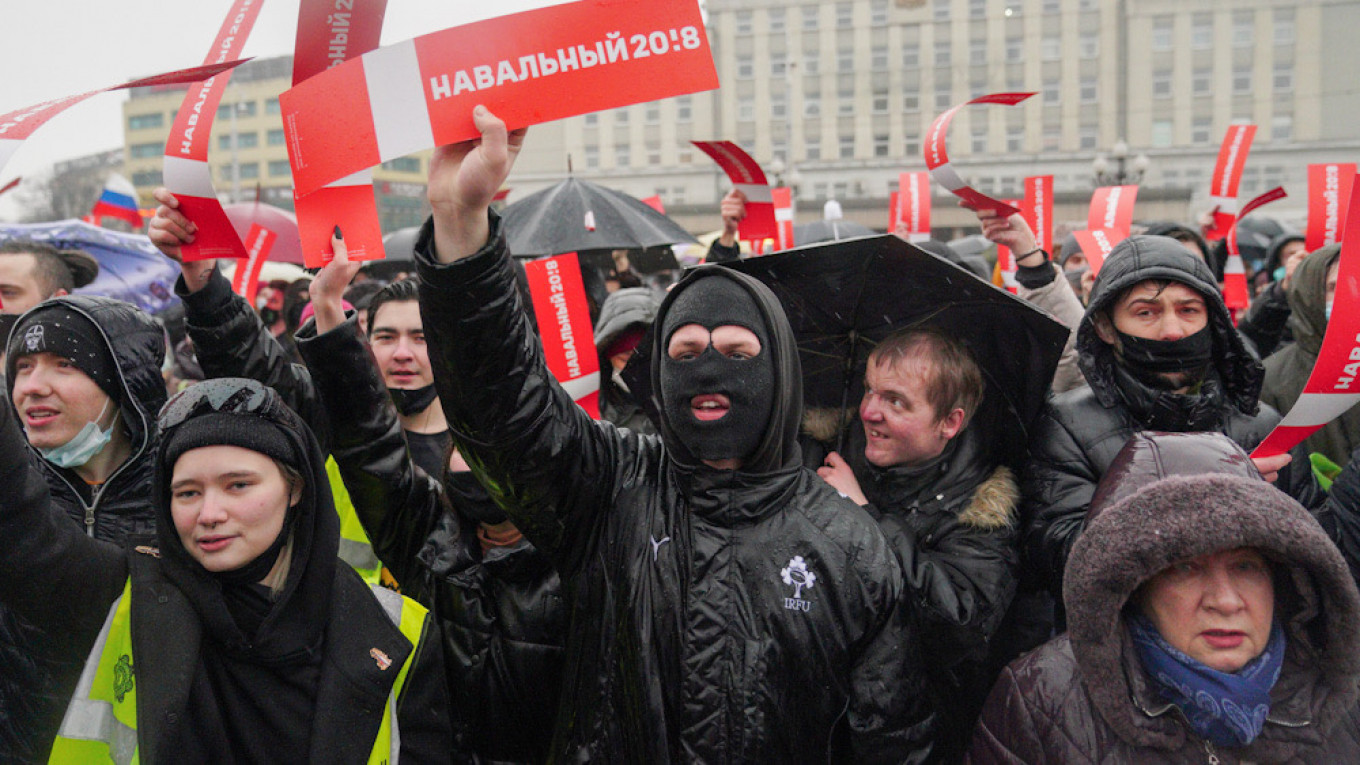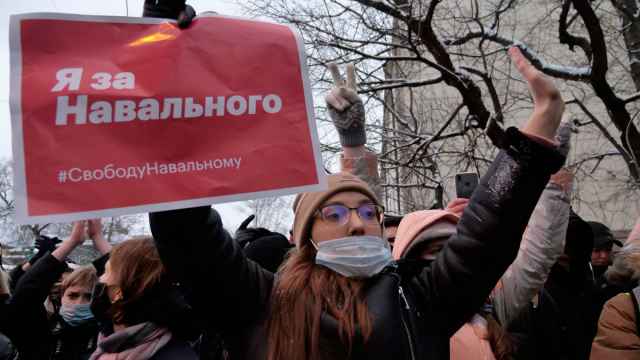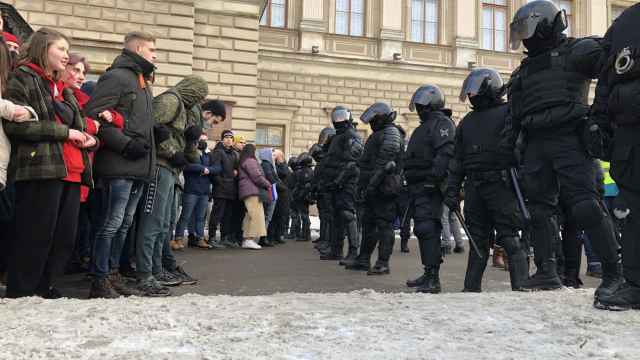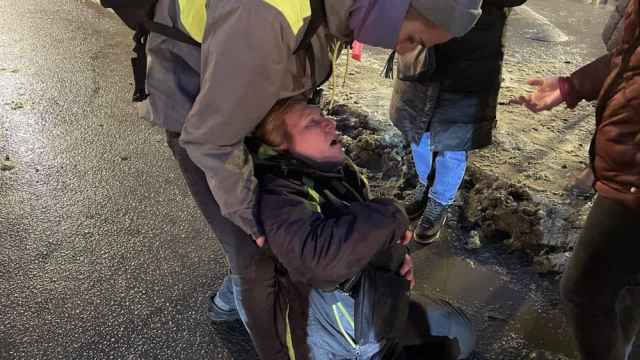Western powers were quick to condemn Russia’s use of force during Saturday's nationwide rallies in support of jailed opposition leader Alexei Navalny, with European leaders calling for tighter sanctions on Moscow.
While some leaders criticized what they called harsh tactics by Russian police, others backed economic measures to target Russian corporations and officials.
Russian officials, meanwhile, have accused western countries of “meddling” in the country’s internal affairs and called the protests an “attempt to blow up Russia” by foreign powers.
Here’s a roundup of international reactions to the Navalny protests, where more than 3,700 people were detained and several sustained injuries:
“We call on Russian authorities to release all those detained for exercising their universal rights and for the immediate and unconditional release of Alexei Navalny. We urge Russia to fully cooperate with the international community’s investigation into the poisoning of Alexei Navalny and credibly explain the use of a chemical weapon on its soil.”
“The United States strongly condemns the use of harsh tactics against protesters and journalists this weekend in cities throughout Russia.”
— Rebecca Ross, U.S. Embassy in Moscow spokesperson:
“Russian authorities arresting peaceful protesters, journalists — appears to be [a] concerted campaign to suppress free speech, peaceful assembly. This continues years of Russia tightening restrictions, repressive actions against civil society, independent media, political opposition.”
“The U.S. supports the right of all people to peaceful protest, freedom of expression. Steps being taken by Russian authorities are suppressing those rights.”
— Josep Borrell, EU foreign affairs chief:
“I deplore widespread detentions, disproportionate use of force, cutting down internet and phone connections.”
“We will discuss on Monday next steps with EU Foreign Ministers.”
— Andrzej Duda, Polish president:
“The only way to [avoid conflict] is to force international law to be observed. The only way to do this without rifles, cannons and bombs is via sanctions. So we are ready to help build consensus on that issue.”
“I think that if we limit the possibility of Gazprom functioning economically on the territory of the EU, especially by concluding new investments, then things including respect for international law and for human and political rights in Russia would start moving forward, because that would be a serious move in the domain of Russian economic interests.”
— Manfred Weber, head of the EU’s largest political alliance, the center-right EPP:
“The EU has to hit where it really hurts the Putin system — and that’s the money.”
“The EU foreign ministers are not allowed to dodge this once again and stop at general appeals.”
[A German government spokesperson declined to comment on whether it would support new Russia sanctions.]
— Jean-Yves Le Drian, French foreign minister:
“I find this authoritarian drift very disturbing [...] I find the questioning of the rule of law, through these collective and preventive arrests, intolerable. I also find that the success of the plural protests throughout Russia is impressive.”
“The fact that [Navalny] was poisoned is an assassination attempt. It was done in Russia, with a Russian chemical, on a Russian personality. So it seems normal to me that an investigation be carried out.”
— Dominic Raab, British foreign secretary:
“The UK condemns the Russian authorities’ use of violence against peaceful protesters and journalists. We call on @GovernmentRF to respect its international commitments on human rights in @coe and @OSCE, and release citizens detained during peaceful demonstrations.”
— Latvian, Lithuanian, Estonian foreign ministers:
“All of us in the EU must be decisive in imposing restrictive measures against Russian officials responsible for arrests.”
A Message from The Moscow Times:
Dear readers,
We are facing unprecedented challenges. Russia's Prosecutor General's Office has designated The Moscow Times as an "undesirable" organization, criminalizing our work and putting our staff at risk of prosecution. This follows our earlier unjust labeling as a "foreign agent."
These actions are direct attempts to silence independent journalism in Russia. The authorities claim our work "discredits the decisions of the Russian leadership." We see things differently: we strive to provide accurate, unbiased reporting on Russia.
We, the journalists of The Moscow Times, refuse to be silenced. But to continue our work, we need your help.
Your support, no matter how small, makes a world of difference. If you can, please support us monthly starting from just $2. It's quick to set up, and every contribution makes a significant impact.
By supporting The Moscow Times, you're defending open, independent journalism in the face of repression. Thank you for standing with us.
Remind me later.






